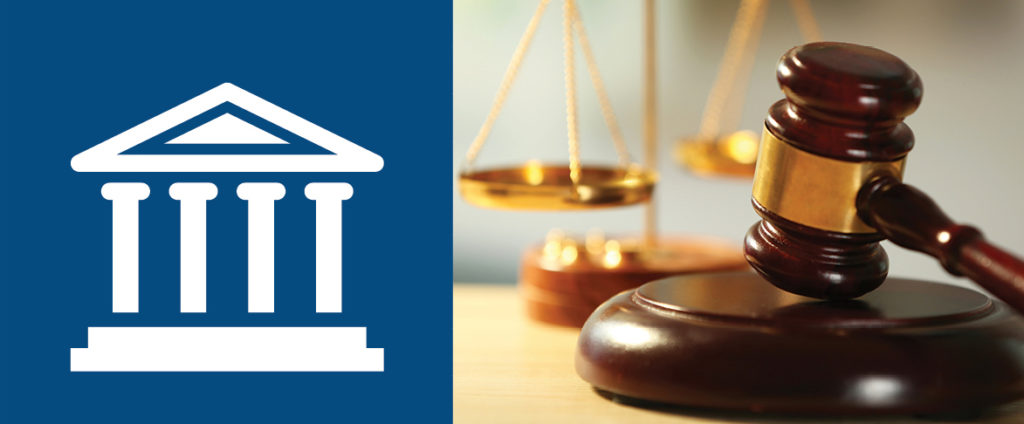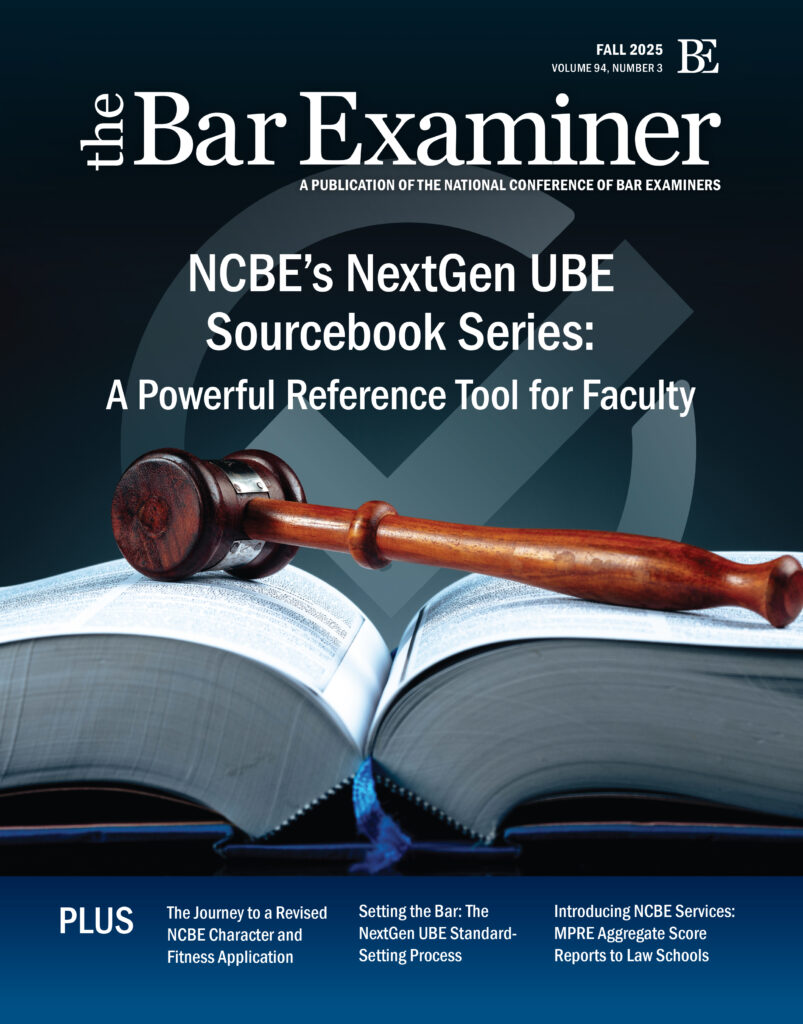This article originally appeared in The Bar Examiner print edition, Fall 2019 (Vol. 88, No. 3), pp 43–44.
Character and Fitness
The United States Court of Appeals for the Seventh Circuit affirms the order of the Executive Committee of the Northern District of Illinois denying an applicant admission to the general bar of that court and requiring that he not reapply for at least one year, ruling that the First Amendment did not give the applicant the right to make false statements in his bar application.
The United States Court of Appeals for the Seventh Circuit, in an unpublished nonprecedential disposition in August 2019, affirmed the order of the Executive Committee of the Northern District of Illinois denying Andrew W. Shalaby admission to the general bar of that court and requiring that he not reapply for at least one year. The court held that the Executive Committee’s order was reasonable in light of Shalaby’s previous conduct. Shalaby is an attorney licensed to practice in California. He was admitted to appear pro hac vice before the Northern District of Illinois in a products liability suit. Opposing counsel moved to revoke Shalaby’s pro hac vice admission on the basis that Shalaby’s application failed to disclose that he had been disciplined by the United States Bankruptcy Court for the Northern District of California. The district judge issued a show-cause order demanding that Shalaby explain why his admission should not be revoked on the basis of his misrepresentations, found Shalaby’s defense of his behavior unpersuasive, and revoked Shalaby’s pro hac vice admission.
While those proceedings were ongoing, Shalaby petitioned for admission to the general bar of the Northern District of Illinois. He again represented that he had not been disciplined by any court. The Executive Committee denied his petition. Shalaby tried again less than a year later, but the Executive Committee again denied his request because the new application did not provide any reason to reconsider its recent denial. It also ordered that Shalaby could not reapply for admission for one year. Shalaby appealed the order, arguing that the Executive Committee wrongly relied on the district court’s revocation of his pro hac vice admission because that revocation was “not final” since he intended to appeal it, and claiming that the Executive Committee’s order infringed his right to free speech. The Court of Appeals ruled that the Executive Committee did not err in taking the district court’s revocation into consideration, and that the First Amendment did not give Shalaby a constitutional right to make false statements in his bar applications.
See In re Shalaby, 7th Cir., No. 19-02369, unpublished 8/20/19, available at https://biglawbusiness.com/first-amendment-doesnt-protect-bar-application-lies-6th-cir
Admission without Examination
The Supreme Court of Appeals of West Virginia agrees with the finding of the West Virginia Board of Law Examiners that an applicant is not eligible for admission without examination (reciprocity) because he failed to produce a certificate of good standing from each state in which he had been admitted to the practice of law, as required by the West Virginia Rules for Admission to the Practice of Law.
The Supreme Court of Appeals of West Virginia, in an unpublished memorandum decision in February 2019, agreed with the decision of the West Virginia Board of Law Examiners denying the application for admission without examination (reciprocity) of Mark W. McFall because he failed to produce a certificate of good standing from each state in which he had been admitted to the practice of law, as required by the West Virginia Rules for Admission to the Practice of Law. The Court determined that this case did not involve a substantial question of law and therefore issued a memorandum decision.
McFall, a graduate of the Cumberland School of Law of Samford University, was admitted to the practice of law by successful bar examination in the State of Texas in 1988 and in the State of Florida in 1990. In 2001, his Texas law license was suspended as a result of nonpayment of bar dues. In 2002, the Supreme Court of Florida entered an emergency suspension of McFall’s license following an allegation that he had misappropriated client funds while serving as an escrow agent. Following the emergency suspension, a formal disciplinary complaint was filed against McFall and the Supreme Court of Florida suspended his license for three years, to be followed by a three-year probationary period. McFall did not apply for reinstatement of his Florida license.
While suspended from the practice of law in Florida, McFall was admitted to the practice of law by successful bar examination in Tennessee in 2010. In 2017, he submitted his application to the West Virginia Board of Law Examiners for admission without examination. As part of his application materials, he submitted only a certificate of good standing from Tennessee. The Board denied his application because he failed to produce a certificate of good standing from either Texas or Florida. McFall requested an administrative hearing, at which he presented evidence in support of his character and fitness to practice law; the hearing examiner noted that the sole issue for determination was McFall’s compliance with the provisions of West Virginia Rule 4.2(a).
Rule 4.2(a) provides that “[i]n order to be admitted to the practice of law in West Virginia, the applicant must be in good standing in every state in which he or she has been admitted to practice and maintains an active status and must submit evidence of that standing.” McFall argued that he had complied with the rule because Tennessee was the only state in which he had been admitted to practice and maintained an active status. The Board argued in response that McFall’s interpretation of the rule was contrary to the purpose of the rule, namely to prevent attorneys who had been suspended in other jurisdictions from engaging in the practice of law in West Virginia. The hearing examiner determined that Rule 4.2(a) requires an applicant to establish that he is in good standing in every state in which he has been admitted to practice law and in every state in which he maintains an active practice. Because McFall failed to satisfy this rule, he was not eligible for admission without examination in West Virginia.
See McFall v. West Virginia Board of Law Examiners, 2019 WL 517815 (W. Va. 2019).
Contact us to request a pdf file of the original article as it appeared in the print edition.








